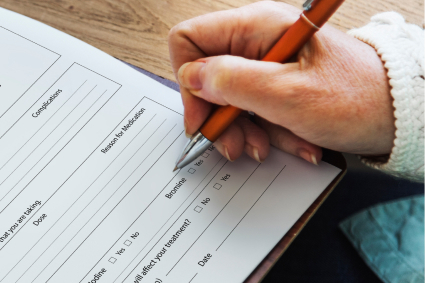Substance abuse disorders (SUD) affect many people. They develop for a variety of reasons: some start as experimenting and turn into an addiction, while others can be the result of unhealthy coping mechanisms. Whatever their cause, once developed, SUD can significantly impact a person’s life, and the consequences are sometimes devastating.
Many treatment methods have been developed to address these issues. Still, inpatient rehab NJ has proven to be the most efficient way to treat SUD, as it provides 24/7 care, medical assistance, and a well-rounded program tailored to different needs. At We Level Up Lawrenceville NJ rehab centers in NJ inpatient SUD programs are tailored to each case to ensure the highest efficiency and comfort possible.

Skip to:
Understanding Drug and Alcohol Addiction
Drug and alcohol addiction in literature are commonly called substance abuse disorders (SUD). The National Cancer Institute defines SUD as the use of illicit drugs, prescription or over-the-counter drugs, or alcohol for purposes other than those for which they were meant to be used or in an excessive amount. That excessive use is detrimental to an individual, society, or both and that includes both physical and psychological dependence. Finally, SUD is a heavy financial burden on individuals, families, and society.
Substance abuse can start as experimentation, but there are many sociodemographic factors contributing to SUD development. SUD can develop as an unhealthy coping mechanism and can be a co-occurring issue to another mental health problem. People can also have more than one SUD at a time.
There is no doubt that substance abuse leads to many social, physical, emotional, and job-related problems. If you are unsure whether you or your loved ones are developing SUD, here are a few signs to pay attention to:
- Taking substances in larger amounts or longer than you’re meant to if it’s a prescription drug.
- Developing tolerance (need for increased amounts to get the same effect or use substances more frequently).
- Continuing to use substances, even when it causes physical or psychological problems.
- Repeatedly using substances even when it puts you in danger.
- Having a strong desire or urge to use the substance.
- Trying unsuccessfully to cut down on or control substance use.
- Spending a lot of time in substance-related activities (like obtaining or using them).
- Facing issues fulfilling daily responsibilities (work, school, or home obligations)
- Giving up on different activities because of substance use.
- Experiencing withdrawal symptoms when not using.
Statistics on Substance Abuse in the US
The data on substance use in the US is devastating. The 2022 national survey by the Substance Abuse and Mental Health Service Administration on substance use has worrying findings:
- Among people aged 12 or older in 2022, 48.7% drank alcohol, and 16.5% used an illicit drug. Marijuana was the most used illicit drug, with nearly 62 million people in this age group using it in the past year.
- In 2022, of individuals aged 12 or more, 48.7 million people (or 17.3%) had a substance use disorder (SUD) in the past year: 29.5 million had alcohol use disorder (AUD), 27.2 million had drug use disorder (DUD) and 8 million had both AUD and DUD.

These numbers highlight the severity of the SUD problem in the US and call for immediate action to prevent and treat substance use disorders. A realible inpatient rehab NJ facility is where you can get the most effective treatment.
Overview of Inpatient Rehab
An inpatient program is the program in which patients receive treatment nonstop while staying at the rehab facility.
Inpatient rehab, also known as residential treatment, offers the highest caliber of recovery services, providing 24-hour supervised nursing with physician availability. Substance abuse treatment centers in New Jersey frequently offer integrated mental health services and medical detox, as both are necessary for a full recovery from addiction.
Inpatient rehab is best suited for patients for patients with substance abuse diagnoses who require medication and who have attempted less intense levels of drug or alcohol therapy but were unsuccessful in maintaining sobriety. This is also the most appropriate setting for patients with subacute biomedical and emotional, behavioral, or cognitive problems that are so severe they require inpatient health professionals.

Get Your Life Back
Find Hope & Recovery. Get Safe Comfortable Detox, Addiction Rehab & Mental Health Dual Diagnosis High-Quality Care at the We Level Up Treatment Centers Network.
Hotline (877) 378-4154What is Inpatient Rehab Like?
Inpatient rehab is tailored to individuals in early recovery who need constant oversight and support and a live-in treatment environment. That is why this type of rehab usually includes medically-assisted detoxification, ongoing medical supervision and support, structured programming, nutritional support, and intensive therapy. The rehab process enables individuals suffering from addiction to overcome dependency on a substance and regain a sense of control and responsibility and begin participating in healthy activities they can maintain once they leave treatment. They participate in numerous group therapy counseling and individual therapy to learn how to cope with triggers, set healthy boundaries, communicate in healthy ways, and refuse drugs.
How Does Inpatient Rehab Work?
The inpatient substance abuse therapy starts by medical professionals thoroughly analyzing your unique circumstances. In order to create a tailored recovery plan for you, the treatment team will assess your physical and mental health as well as your history of substance use. With your consent, the rehab team may discuss your needs and challenges with your family members and experts you may already be working with.
A multidisciplinary team will often give you a holistic treatment plan because addiction is a disease that affects your body, mind, and spirit. The accredited residential treatment team members could be:
- Physicians
- Nurses
- Psychiatrists
- Psychologists
- Licensed therapists for marriage and families
- Certified addiction specialists
- Nutritionists
- Fitness and wellness professionals
- Coordinators for ongoing care
- Financial defenders
- Specialized case managers

How Long Does Inpatient Rehab Last?
Your progress toward achieving particular therapeutic milestones will determine how long you must remain in inpatient alcohol rehabs, inpatient alcohol, or drug recovery facilities. The clinical team will consult with your family, insurance company, and you to create the ideal schedule and strategy for you.
Programs for addiction treatment can range from 30 to 90 days. The shortest stay possible is often a 30-day recovery program. In actuality, a 30-day stay is the most typical duration. Even while 30 days might not seem like enough time to overcome an addiction, they can be quite helpful. It offers people structure and assistance as they go through detox and start to learn how to live soberly. For other people, though, this might not be enough time to overcome their addiction.
Following your inpatient treatment, you will be given advice on how to continue your recovery support and build your sobriety in order to lower your chance of relapse. Addiction is a chronic condition, much like diabetes or high blood pressure. In order to regain your health, you must first learn to control your symptoms within the confines of an inpatient rehabilitation program. Afterward, you must eventually do so in your own home setting, where you are in charge of sustaining and bolstering your recovery.
Why Choose Our Inpatient Rehab NJ Program
First, we believe that you should be treated with dignity and respect. Then, we want to provide a comprehensive inpatient treatment program that encompasses all aspects of recovery. Here at We Level Up Lawrenceville NJ, our program is individualized, integrated, and specialized to meet the needs of our guests. Our treatment particularly addresses the needs of those who are experiencing co-morbid mental health issues.
We take a holistic approach to recovery. This means providing a comprehensive experience that addresses all aspects of an individual’s health and wellness: physical, mental, and emotional. Our compassionate team is present to address medical needs, mental health, comfort, and uncertainty throughout the detox process and beyond. Moreover, we provide proactive guidance to help clients stay focused on their sobriety goals during their stay at our inpatient rehab NJ facility. Above all, we aim to help you recognize and understand the harmful consequences of maladaptive behaviors related to psychiatric disorders and chemical dependence.
Inpatient substance rehab programs at the We Level Up mental health and addiction centers network provide licensed, accredited, integrated, evidence-based therapy programs. A stay in an inpatient rehab New Jersey program for drug and alcohol abuse or mental health disorder treatment can be just what you need to get better and stay that way. Our inpatient rehab NJ program helps patients make real recovery progress and become sober before returning home, school, or to their career, or just to make a better life for themselves and their families.

Therapies and Treatments Offered
Programs, services, and treatments vary. We Level Up New Jersey inpatient rehab center offers inpatient substance abuse treatment coupled with co-occurring dual-diagnosis programs. We treat the entirety of addiction and behavioral health disorders, including their secondary corresponding illnesses, to improve long-term recovery outcomes. Get a free health assessment and find out what treatment options are most suitable for you.
Drug and Alcohol Detox Process
The first stage in assisting your body and brain in recovering from chemical misuse is detox. Detox is essentially a period of time to rid your body of chemicals. Still, it can be difficult without the proper medical attention to deal with discomfort and/or drug cravings. Whether you find yourself in inpatient drug rehab or inpatient alcohol rehab, you can expect a variety of withdrawal symptoms that are successfully managed during the detoxification phase.
During your first week in a New Jersey rehab, doctors and nurses conduct assessments to ascertain whether any medical interventions are required before beginning the detox procedure. The medical professionals will collaborate with you to assess your level of discomfort and, if necessary, give you medicine to deal with any pain or urges. When necessary, they can provide over-the-counter medications in addition to short-term use of prescriptions like Suboxone, Methadone, Naltrexone, Acamprosate, and Disulfiram. This is to mitigate the more severe side effects, symptoms, and cravings that accompany detox. In conclusion, this is essential to helping some clients with relapse prevention.
We Level Up Lawrenceville NJ medical experts will monitor and help you ease the symptoms of withdrawal during detox inpatient treatment. Withdrawal symptoms include insomnia, irritability, changing moods, depression, anxiety, aches and pains, cravings, fatigue, hallucinations, and nausea. In addition, the person may be hot and cold, have goosebumps, or have a runny nose as if they have a cold. Severe withdrawal symptoms, especially for drugs and alcohol, can include paranoia, confusion, tremors, and disorientation.
You will be under constant medical observation throughout the detoxification process until medical personnel deem that you are stable enough to participate in treatment programming and activities.
Get Help. Get Better. Get Your Life Back.
Searching for Accredited Drug & Alcohol Rehab Centers Near You? Or Mental Health Support?
Even if you have failed previously, relapsed, or are in a difficult crisis, we stand ready to support you. Our trusted behavioral health specialists will not give up on you. Call us when you feel ready or want someone to speak to about therapy alternatives to change your life. Even if we cannot assist you, we will lead you wherever you can get support. There is no obligation. Call our hotline today.
FREE Addiction Hotline – Call 24/7Post-Detox Therapies
For three to four weeks following detox at an inpatient rehab New Jersey facility, patients reside in New Jersey inpatient rehab centers with limited access to the outside world. During this time, they work with counselors and other addiction professionals in individual and group settings to facilitate healing, productive coping mechanisms, and a healthy attitude toward sobriety.
Activities for inpatient drug therapy could include:
- To treat chemical health, group therapy
- Chemical health evaluations and treatment for each individual
- Co-occurring mental health treatments that are integrated with mental health professionals (may include individual, group, and family therapy)
- Therapy and evaluations of each person’s mental health
- Medical consultations
- Health and fitness pursuits
- Family program involvement
- Nutritional evaluation
- Spiritual support
- Workshops that are both educational and practical
- Organizing for ongoing care
Programs for treating substance addiction are based on research that shows what is effective in getting individuals sober and keeping them that way, as well as on experience. Some of the evidence-based therapies that doctors employ are:
- Cognitive-Behavioral Therapy
- Acceptance and Commitment Therapy
- Twelve Step Facilitation
- Contingency Management/Motivational Incentives
- Solution Focused Brief Therapy/Solution Focused Therapy
- Dialectical Behavioral Therapy
- Psychoeducational Groups
- Interpersonal Therapy
- Motivational Interviewing
- Medication-Assisted Therapies
- Motivational Enhancement Therapy
- Mindfulness-Based Cognitive Therapy
Inpatient addiction treatment strongly emphasizes health stabilization and evaluation to ensure that you are emotionally, physically, and cognitively prepared to learn about the fundamentals of recovery and start implementing them. You will be given a daily schedule of therapy activities, appointments, and services that are catered to your particular requirements and objectives.

Co-Morbid Conditions: Dual Diagnoses And Treatment
The high rate of comorbidity between substance use disorders and other mental illnesses calls for a comprehensive approach that identifies and evaluates both. In fact, anyone seeking help for either substance abuse or another mental disorder should be considered for both and treated accordingly.
At our dual diagnosis treatment center, We Level Up Lawrenceville NJ team can provide the highest quality of care in a safe and tranquil environment. So, we offer specialized treatment in dual diagnosis cases to provide the most excellent chance of true healing and long-lasting recovery.
Several behavioral therapies have shown promise for treating co-morbid conditions because their approach is holistic. These approaches can be tailored to patients according to age, the specific drug misused, and other factors. Therapies can be used alone or in combination with medications. Some effective behavioral therapies for treating co-morbid conditions during inpatient rehab NJ include:
- Cognitive-Behavioral Therapy (CBT): This therapy helps change harmful beliefs and behaviors.
- Dialectical Behavioral Therapy (DBT): A therapy designed specifically to reduce self-harm behaviors. Self-harm, such as suicide attempts, thoughts, urges, cutting, and drug use.
- Assertive Community Treatment (ACT): This type of treatment emphasizes outreach to the community and an individualized approach to treatment.
- Therapeutic Communities (TC): TCs are a common form of long-term residential treatment that focuses on the “resocialization” of the person.
- Contingency Management (CM): This approach rewards people who practice healthy behaviors with vouchers or cash.
Addiction treatment is not a one-size-fits-all experience. Our thorough rehabilitation approach supports several recovery therapies to ensure the best possible outcome for every patient who enters our doors. Creating a treatment plan that addresses the physical aspects of withdrawal, the psychological connection with drug use, and managing underlying mental health disorders is part of setting clients up for success. From an intensive and more supportive atmosphere for those in the early days of recovery to medication assistance for those who need it, we are here to help you find the right path to sobriety.
Comfortable Facilities & Amenities
High-Quality Addiction & Mental Health Rehabilitation Treatment
Rehab Centers TourRenowned Addiction Centers. Serene Private Facilities. Inpatient rehab programs vary.
Addiction Helpline (877) 378-4154Proven recovery success experience, backed by a Team w/ History of:
15+
Years of Unified Experience
100s
5-Star Reviews Across Our Centers
10K
Recovery Success Stories Across Our Network
- Low Patient to Therapist Ratio
- Onsite Medical Detox Center
- Comprehensive Dual-Diagnosis Treatment
- Complimentary Family & Alumni Programs
- Coaching, Recovery & Personal Development Events
Premier Choice for Rehab
There are many New Jersey inpatient rehab centers that offer a variety of substance abuse programs, but our We Level Up Lawrenceville NJ treatment center stands out as a premier choice. We offer a comprehensive, integrated, and holistic approach to any substance abuse problem you might be facing. Our inpatient rehab NJ is world-class and provides evidence-based dual-diagnosis programs coupled with customized mental health therapies.
Inpatient rehab New Jersey center is a part of the We Level Up network spanning from coast to coast, offering upscale science-supported substance abuse and mental health programs.
Here is what speaks for the quality of We Level Up network services:
- level of facility accreditation
- certifications and licensing
- verified Google ratings
- how the treatment center rated by past clients
- how effective and varied are their inpatient treatment programs are
The We Level Up inpatient rehabs network is licensed and nationally accredited.
World-class, Accredited, 5-Star Reviewed, Effective Addiction & Mental Health Programs. Complete Behavioral Health Inpatient Rehab, Detox plus Co-occuring Disorders Therapy.
CALL (877) 378-4154End the Addiction Pain. End the Emotional Rollercoaster. Get Your Life Back. Start Drug, Alcohol & Dual Diagnosis Mental Health Treatment Now. Get Free No-obligation Guidance by Substance Abuse Specialists Who Understand Addiction & Mental Health Recovery & Know How to Help.
What Amenities To Expect in Our Inpatient Rehab NJ?
Everything about our inpatient rehab NJ facilities is designed to support your recovery, aid your mental state, and provide you with peace. We meet and exceed a set of basic standards as we believe that whether you are in low-cost or luxury rehab, you deserve these basic yet comfortable amenities that help you focus on your progress:
- Comfortable and clean spaces: Inpatient rehab NJ facilities feel calm and comforting. Clean, welcoming offices, rooms, meeting spaces, and grounds help you start fresh.
- Supervision: You are not alone with your substance abuse problem at an inpatient rehab New Jersey. We have professional medical support and care to help you commit to not using substances.
- Nutritious meals: The body needs nutrients and energy to heal from the effects of substance abuse. Living on-site, you can expect nutritious and healthy meals designed for recovery.
- Exercise: Exercise is beneficial for rebuilding your health after substance abuse. While specific equipment may not always be available, expect some exercise opportunities to be built into the schedule.
Although proud of our facilities, we always aim to provide more, which is why we are open to feedback of any kind and gladly respond to it whenever it´s possible.

Admission Process
To get admitted to inpatient rehab NJ, you ought to go through a simple procedure. It all starts with a call that is confidential and non-binding. During that call, we can help you check your insurance coverage and share any information you are interested in. If you opt for our services, you can expect a few steps between this call and you or your loved ones joining us.
- Pre-admission assessment. To provide you with an individualized program during your inpatient substance abuse treatment NJ experience, we collect information such as medical history, substance use history, and thoughts and feelings. We use this data to make an assessment and customize your substance abuse treatment.
- If we haven´t done it during the informative call, the next step in the admission process would be an insurance and payment check. We will verify whether your insurance plan covers inpatient rehab New Jersey. If that is not the case, we can explore alternative options together.
- We will then assign you a dedicated treatment consultant who will coordinate your stay and treatment with the facility.
- As a final step, we assist you with transportation and arrival. You will be welcomed and guided every step of the way.
Once you join us, your recovery journey may begin.
Financing and Insurance
The choice of treatment facility, amount of clinical care advised, and period of treatment all affect the cost of inpatient rehab and how much inpatient rehab programs cost. The amount you spend will also vary depending on whether you can use insurance benefits to defray the expense or whether you must pay out of pocket. It´s crucial to speak with your provider about the precise details of your coverage because insurance policies and benefits vary widely.
You can rest assured if your insurance provider is one of the following:
We Level Up Lawrenceville NJ has a long history of partnerships with these providers and knows that, depending on your insurance plan, they can cover your inpatient rehab NJ fully or partially.
There is the opportunity to enroll in a low-cost or free addiction treatment program for people without health insurance who are unable to afford the fees of drug or alcohol addiction therapy. Free substance abuse programs are frequently provided at a variety of government-funded hospitals and rehab centers, nonprofit rehab facilities, and rehab centers run by faith-based organizations. Nonprofit rehab centers or free drug and alcohol rehab programs are provided to eligible clients at no cost.

Start Recovery Today
If you are looking to take the first step toward sobriety, inpatient rehab in New Jersey at our We Level Up Lawrenceville NJ treatment center is the best choice. Don’t hesitate to contact us today to learn more about our residential drug and alcohol rehab programs and what our dedicated team of addiction inpatient rehab professionals can do to support your recovery.
Experience Transformative Recovery at the We Level Up Treatment Center.
See our authentic success stories. Get inspired. Get the help you deserve.



Start a New Life
Begin with a free call to an addiction & behavioral health treatment advisor. Learn more about our dual-diagnosis programs. The We Level Up treatment center network delivers various recovery programs at each treatment facility. Call to learn more.
- Personalized Care
- Caring Accountable Staff
- Comfortable Amenities
- Licensed & Accredited
- Renowned w/ 5-Star Reviews
We’ll Call You
Sources:
Griffin, J.B. (2013). Substance Abuse. [online] Nih.gov. Available at: https://www.ncbi.nlm.nih.gov/books/NBK319/.
National Cancer Institute (2011). Substance Abuse. [online] National Cancer Institute. Available at: https://www.cancer.gov/publications/dictionaries/cancer-terms/def/substance-abuse.
SAMHSA (2023). HHS, SAMHSA Release 2022 National Survey on Drug Use and Health Data. [online] www.samhsa.gov. Available at: https://www.samhsa.gov/newsroom/press-announcements/20231113/hhs-samhsa-release-2022-nsduh-data.





